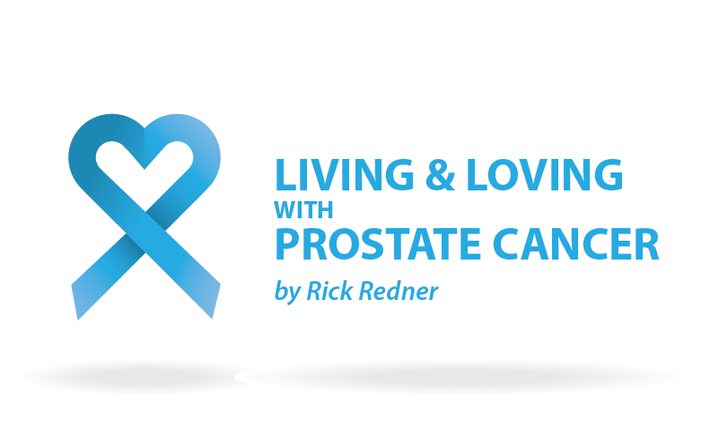My six-year presence on social media provides me with the opportunity to hear from thousands of men and couples coping with prostate cancer.
Some of them are doing great, while others had their lives and relationships fall apart.
There’s not a relationship between prognosis and adjustment outcomes. In other words, some men who are terminal are coping well. They’re living their remaining time with meaning and purpose. They’re growing closer to their partner.
An example is Mark Bradford, who’s coping with end-stage prostate cancer. He recently wrote a blog titled, “Last Times.” I encourage you to read it.
How you cope with the time you have left as a cancer survivor is greatly influenced by your attitude, thoughts, and feelings toward loss and suffering, rather than your prognosis.
I believe it’s useful for cancer survivors to become familiar with the work of Vicktor Frankl.
During World War II, he spent three years in a number of Nazi concentration camps. He faced starvation, unimaginable cruelty, torture, horrendous living conditions, mass executions, and the daily stench of burning flesh.
Based on his observations and experiences living in concentration camps, he wrote a book about suffering. The title is “Man’s Search For Meaning.”
I’m going to discuss a few of his quotes related to how to respond to suffering and cancer-related loss.
Those who manage to cope well with unwanted change and loss understand this reality:
“Everything can be taken from a man but one thing: the last of the human freedoms — to choose one’s attitude in any given set of circumstances, to choose one’s own way.”
A large number of men get stuck in the belief that erectile dysfunction has taken away their manhood. If that’s the meaning attached to losing their erectile abilities, men usually give up on the notion of finding new and creative ways to satisfy their partner. They typically withdraw from all forms of affection, such as kissing and holding hands.
Frankl wisely observed:
“When we are no longer able to change a situation, we are challenged to change ourselves.”
When we face unwanted cancer-related loss that we cannot change, it is time to change ourselves.
If we get stuck in a victim mentality where we feel hopeless, helpless, and powerless, we won’t believe there are new, different, and creative ways to live with what we’ve lost.
I said goodbye to my victimhood when my wife presented me with a word picture that fit my current circumstances.
She said I should consider thinking of myself as a soldier in the war against prostate cancer. Everything I lost as a result of surgery are my war injuries. I’m not the same person I was when the war began, but I’ve made it home.
Frankl says:
“Life is never made unbearable by circumstances, but only by lack of meaning and purpose.”
It wasn’t in my life’s plan to write books and articles about prostate cancer. I never imagined I’d be hosting prostate cancer, erectile dysfunction, and penile implant pages on Facebook.
Those are the fruits of the meaning and purpose I found as a prostate cancer survivor. Each of us needs to discover our own meaning and purpose as cancer survivors.
When I was first diagnosed, I was fearful I’d die before meeting a single grandchild. I’m writing this paragraph at the Oakland airport. I’m waiting for a flight to Illinois to meet my third granddaughter. My wife and daughter are with me.
My priorities changed after my diagnosis. My career moved down the ladder of my priorities. Spending time with family moved up the priority ladder.
There’s one more place I find meaning and purpose in suffering, loss, and unwanted change. That source is the Bible. This Bible verse from Romans 5:3 is important to me:
“Not only so, but we also glory in our sufferings, because we know that suffering produces perseverance; perseverance, character; and character, hope.”
This verse convinces me there’s not the tiniest or greatest amount of suffering, loss, and unwanted change that goes to waste. God can use it all to build up character traits that I find highly useful as I live my life as a cancer survivor.
Finding a new meaning and purpose wasn’t easy. I needed professional help before I was willing to leave my position as the guest of honor at my “by invitation only” pity party.
Frankl is correct. We can choose our attitudes when we can’t change our situation. We can find new meaning and purpose. We can live above our current circumstances.
Frankl reminds us:
“In some ways suffering ceases to be suffering at the moment it finds a meaning, such as the meaning of a sacrifice.”
We can choose to discover new meaning and purpose in our lives as cancer survivors.
***
Note: Prostate Cancer News Today is strictly a news and information website about the disease. It does not provide medical advice, diagnosis, or treatment. This content is not intended to be a substitute for professional medical advice, diagnosis, or treatment. Always seek the advice of your physician or other qualified health provider with any questions you may have regarding a medical condition. Never disregard professional medical advice or delay in seeking it because of something you have read on this website. The opinions expressed in this column are not those of Prostate Cancer News Today or its parent company, BioNews Services, and are intended to spark discussion about issues pertaining to prostate cancer.


